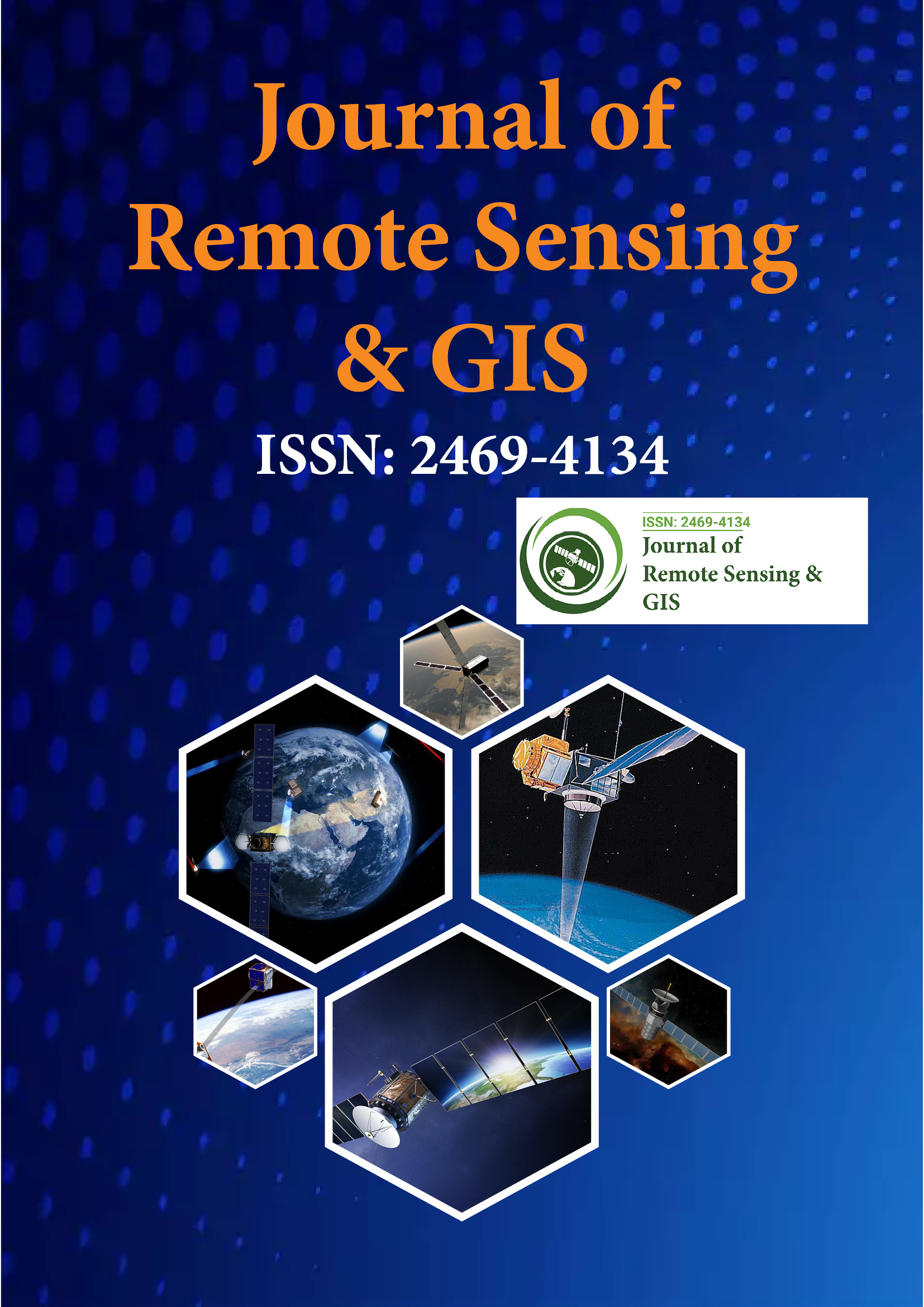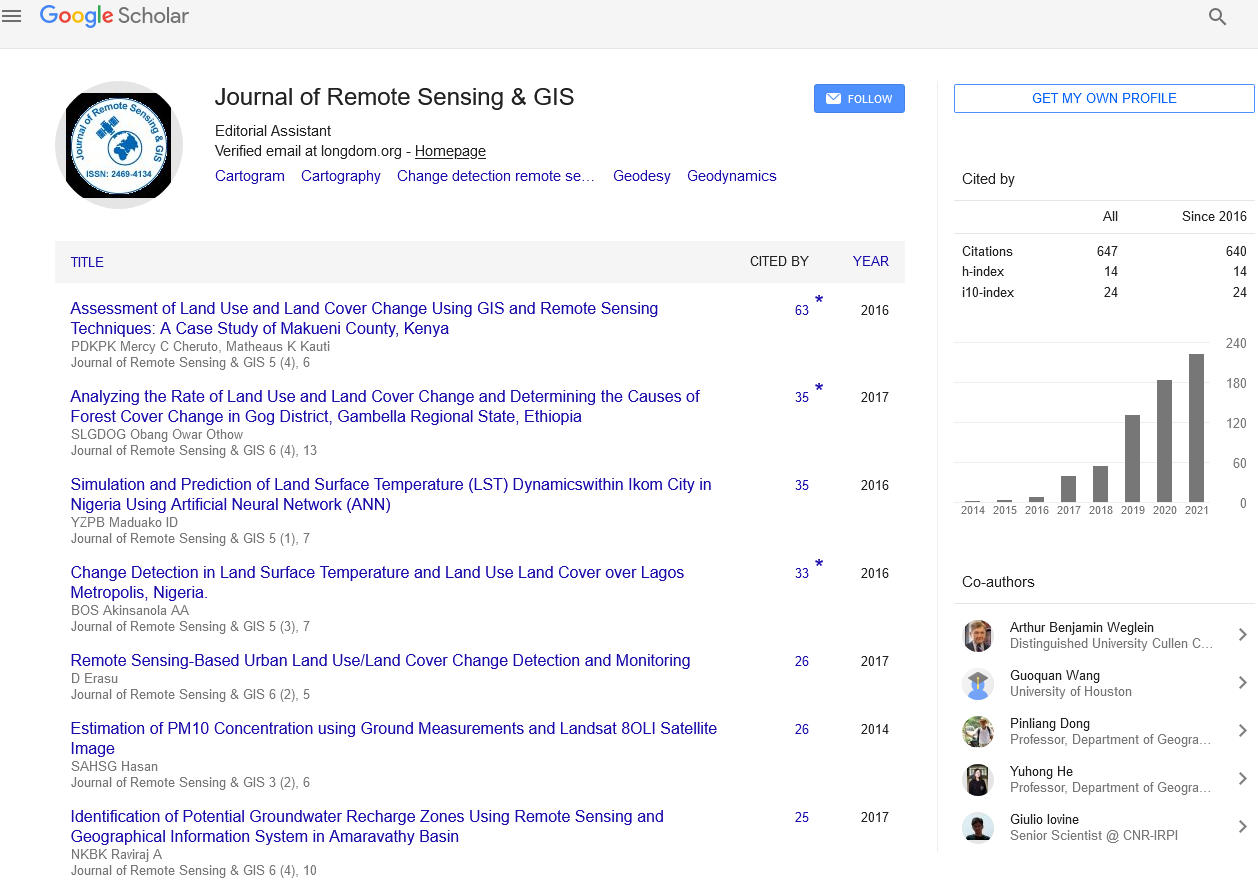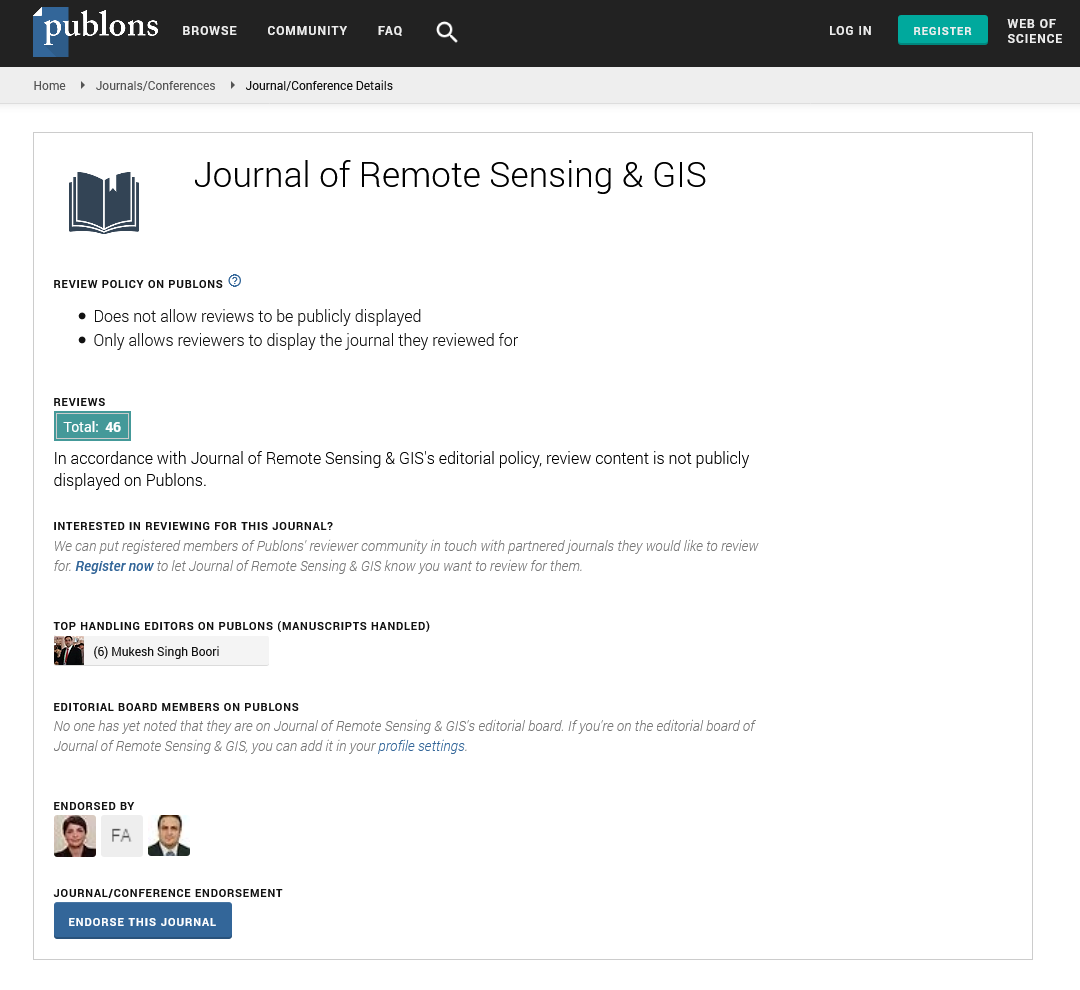Indexed In
- Open J Gate
- RefSeek
- Hamdard University
- EBSCO A-Z
- OCLC- WorldCat
- Publons
- International Scientific Indexing
- Euro Pub
- Google Scholar
Useful Links
Share This Page
Journal Flyer

Open Access Journals
- Agri and Aquaculture
- Biochemistry
- Bioinformatics & Systems Biology
- Business & Management
- Chemistry
- Clinical Sciences
- Engineering
- Food & Nutrition
- General Science
- Genetics & Molecular Biology
- Immunology & Microbiology
- Medical Sciences
- Neuroscience & Psychology
- Nursing & Health Care
- Pharmaceutical Sciences
Abstract
Geospatial Tools for Suitable Assessment of Small Holder Irrigation Water, towards Increased Food Production and Poverty Eradicationin Nigeria: A Case of Jos East LGA. Plateau State
Ibrahim ES*, Gajere EN, Dang BA, Jerome, Dashan T, Mwada H and Ojih S
Irrigation is very crucial for sustaining global food security and poverty reduction, especially during off season food production in developing countries. Plateau state in recent years is exploring extensive irrigation schemes to meet up overwhelming national demands of exotic temperate crops and vegetables. The local farmers relyon seasonal streams and abandoned mine ponds for irrigating their crops, but water in these sources are exhausted easily, leading to increased yield losses. This research explores geoinformation methods to map, select and quantify suitable areas to site reservoirs for sustainable Small Holder Irrigation in Jos East LGA of Plateau state as a case study. Spatial Multi Criteria Analysis (SMCA) and other quantitative tools were employed for the spatial modeling and subsequent analysis. The results revealed that 11 sites are highly suitable in Jos East. Volumetric analysis was carried out to estimate potential water collection capabilities of these reservoirs, and the water prospect is estimated between ~172,660 m3 to ~13,929,275 m3, this was based on the calculated depth, and surface area of the prospective reservoirs. Subsequently, this model can be replicated in other parts of Plateau state, Nigeria and Africa with similar environmental, climatic conditions and water demands. We propose small reservoirs with simple engineering techniques to serve poor local communities in developing countries, which can alleviate poverty and enhance sustainable agricultural production. The initiative is in line with FAO’s and World Bank’s programs and recommendations, and which can promote pragmatic solutions and guide project allocations in line with Sustainable Development Goals (SDGs).
Published Date: 2020-05-27; Received Date: 2020-05-06


